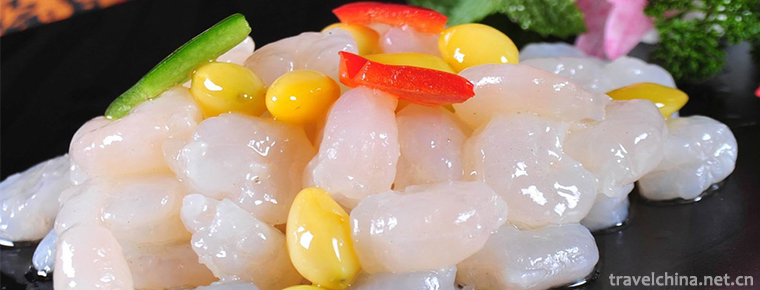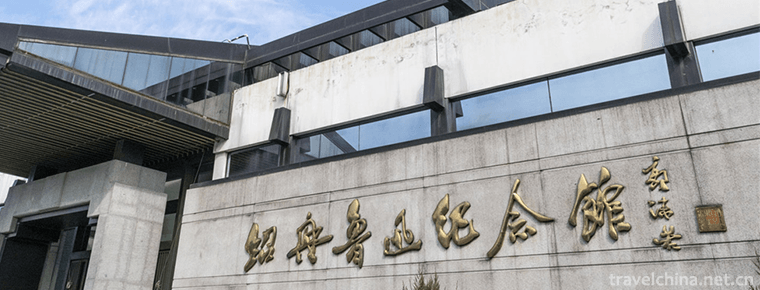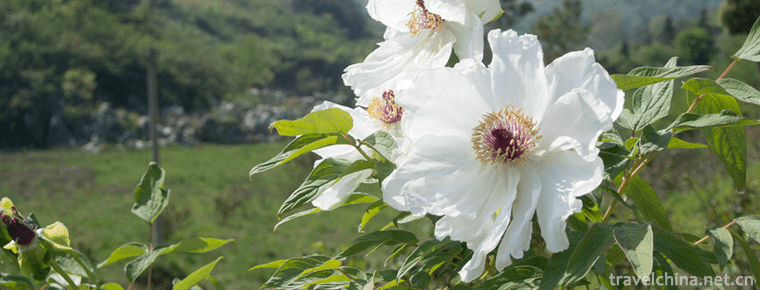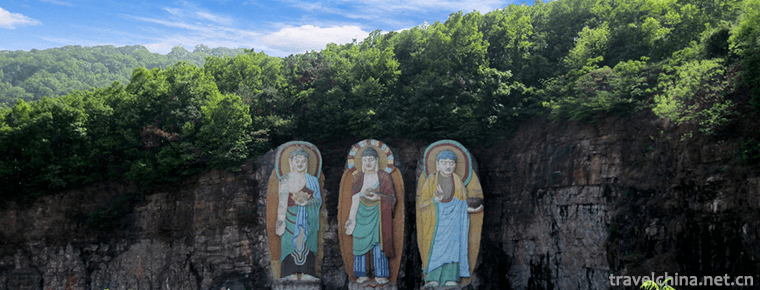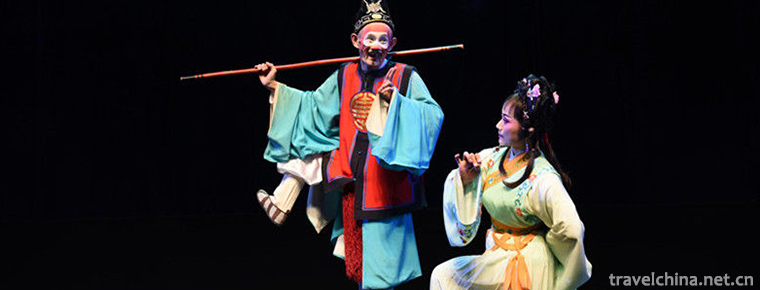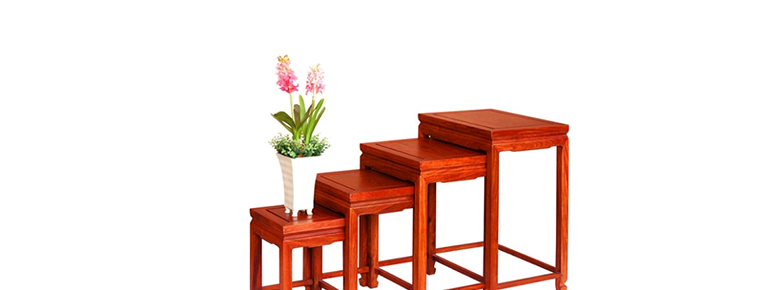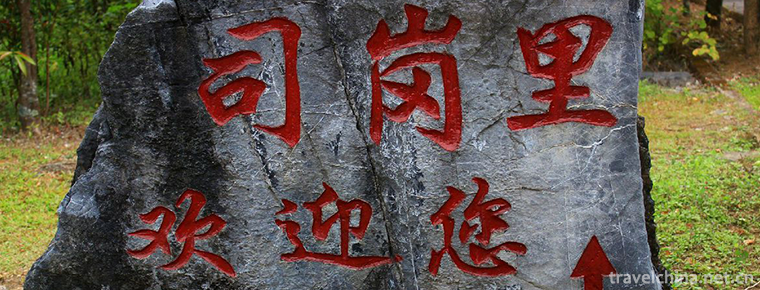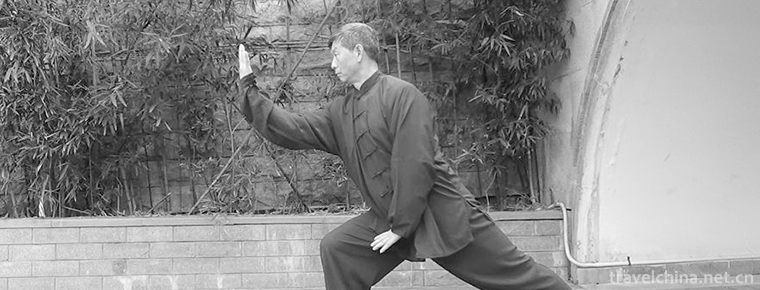Wooden Fish Songs
Wooden Fish Songs
Muyu song is short for Muyu, also known as Touyu song. It is one of the traditional rap and singing arts in Guangdong Province and belongs to the system of Tanci. It is popular in the Pearl River Delta, Xijiang River and South Road of Guangdong Province. It originated in the late Ming Dynasty and flourished after the Qing Dynasty. Early Muyu songs were accompanied by compilers. Later, they were recorded, copied and printed. Muyu songs were popular in the late Ming Dynasty and flourished after the Qing Dynasty. In the Qing Dynasty, Qu Dajun's Guangdong Xinyu and Luo Tianzhi's Wushan Zhilin recorded the grand singing occasion at that time. Early Muyu songs were accompanied by choreographers, singing by memory, then recording the lyrics, rolling and copying, or first compiling the lyrics, publishing and publishing books to sing. This kind of transcript or engraved edition, called Muyu Book, can be used as a script for singing and also for reading.
On May 23, 2011, the "Wooden Fish Song" declared by Dongguan City of Guangdong Province was listed in the third batch of national intangible cultural heritage list with the approval of the State Council.
Muyu song belongs to the category of playing words and songs. It is often accompanied by three strings when singing. Muyu books are mostly sung by the blind, so they are commonly called "the song of the blind man". They are popular in urban films, water town films, coastal films, Putian films, hilly films and other villages. Qu Dajun's Guangdong Xinyu in the early Qing Dynasty recorded: "Dongguan Sui Dynasty... Ordinary Qun men and women often sing with a record, its words to thousands of words, elegant and vulgar, chastity and lewdness, according to the master's command to sing. Muyu songs are often sung directly by Dongguan people, Dongguan affairs, and the theme of lyrics is rooted in the society and the market. Every auspicious host in Guanyi will invite wooden fish calligraphers to play and sing for the festival, wedding and funeral. Dongguan folk songs have clouds: "If you want to be epileptic, sing"Flower Paper"; if you want to be silly, sing"Two Lotus"; if you want to cry, sing"Golden Leaf Chrysanthemum". From this point of view, the popularity and influence of Muyu song in the society and the market at that time.
historical origin
The earliest Cantonese opera figures recorded in ancient books should be Zhang Bui, a native of Nanhai, who was later fenced to the South Palace Hou when Emperor Xiaohui of the Western Han Dynasty. He "served in the courtyard, and the drums were more and more praised, and satirized at the same time" (Ming Ou Daren's "Baiyue Xianzhi"). Since the Han Dynasty, there have been sporadic records of Guangfu's folk art in ancient books.
Beginning from the Tang Dynasty, the integration of Buddhist variants, Baojuan singing and local folk songs, formed in the late Ming Dynasty, is a Recitation-Style folk art, popular in the Pearl River Delta from the Qing Dynasty to the early Republic of China. Muyu was a solo singer at the beginning, without accompaniment. Its tone was simple and simple. It was especially loved by folk women. It was often sung at home and entertained itself. Later, blind artists took singing wooden fish as their profession and accompanied by musical instruments. The male was called "oath master" and the female was called "Qu Ji". The tone changed, creating a plum blossom tune with bitter throat to express sad feelings. Women often invite them to sing at home, which is a very good business during the Mid-Autumn Festival. Because of the popularity of wooden fish, wooden fish song books are also popular in large numbers, resulting in a number of works with distinctive Lingnan folk literature characteristics and high artistic value. Among them, Records of Flower Notes and History of Two Lotus Flowers are also famous in the international literary world. For example, Flower Notes was translated into English and published in Germany by British and German scholars in 1824 and 1836. There are also "Three Kingdoms", "Hao Tie Zhuan", "Yujiao Li", "Pingshan Lengyan", "Jinhao Ji", "Xixiang Ji", "Pipa Ji", "Coral Fan Golden Lock Mandarin Duck Ji", "Yanling Medium" and so on, which are also called "Talented Book" in Wooden Fish Books. Others are adapted romances, based on social life, reflecting the Democratic revolution, exposing the ugly aims of foreign aggressors. There are now 500 kinds of wooden fish bibliographies, 45,000 volumes. Early works such as The Birth of Guanyin and The Ten Advices of Guanyin can be seen as Buddhist variants and treasure books, which are widely spread among the people. At the end of the Qing Dynasty and the beginning of the Republic of China, progressive newspapers often publicized revolutionary wooden fish works, which can be seen as popular among the masses.
However, after the May 4th New Culture Movement, wooden fish lagged behind the times because of its monotonous tone and little change, and fewer people created and sang wooden fish. Later, wooden fish appeared occasionally in Cantonese opera singing as a kind of music card. Dragon boat song is short for Dragon boat. The origin of the song is that the folk tune of changing wood and fish was created in Longjiang, Shunde, and the eulogy to the Dragon King during the Dragon Boat Race. Formed in the reign of Qianlong in the Qing Dynasty, it was popular in the Pearl River Delta. Professional artists often hold a long stick with a small wooden dragon boat on top as a sign, hanging a pair of gongs and drums on their chest, beating rhythm and singing, without accompanying other instruments. Some of the Dragon Boat repertoires are rewritten in wooden fish books, some are compiled and sung by artists themselves, with a wide range of contents, and some are compiled and circulated in music books. Before and after the 1911 Revolution, the revolutionary party members wrote "social dragon boat" and "political dragon boat", which became the literary and artistic form of publicizing the revolution. Later, with the rise of Cantonese Opera, the Dragon Boat declined, and it was only occasionally sung as a melody in Cantonese Opera. But on the eve of liberation, there were still well-known artists such as Dragon Boat Chess, Dragon Boat De, Dragon Boat Ning and Dragon Boat Club. At that time, the travelling artists sold and sang along the street, earning a small income, and the situation was poor.
From the end of Ming Dynasty to the beginning of Qing Dynasty, it was popular in the Pearl River Delta of Guangdong Province. It was a traditional folk rap form sung in Guangzhou dialect. It is an important way for people in urban and rural areas, especially women, to entertain themselves and express their feelings. Similarly, Dongguan Muyu Song has a long history of 400 years. Its grand occasion can be seen from the records of the local literary and historical scholar, Mr. Yang Baolin: "On the New Year's Day, at leisure, under the banyan tree, women in the hall sit around, please literate people sing it according to the song book." As soon as you hear the woodfish singing, you crowd around and listen to it. The expression of the listener varies with the plot of the song book. There are scolders, sighs, tears and laughers. In Guancheng, besides the New Year's Day, the most popular one is the Yulan Festival. In addition, Yang Baolin's "Flower Notes", a masterpiece by Guanren, once traveled across the sea. In 1827, German poet Goethe wrote in his diary his thoughts on reading an English translation. Nowadays, Muyu song is no longer flourishing. As a native of Guan, the author had never heard of it before his field trip, and most of his parents knew nothing about it. In order to find out and understand the brilliant wood fish songs of the past, a field survey was conducted in Daojiao Town, Dongguan City in spring 2005.
1. Natural environment: Daojiao is located in the west of Dongguan, covering an area of 63 square kilometres, 30 kilometres north of Guangzhou, 90 kilometres south of Hong Kong, 5 kilometres east of Dongguan, and the Guangzhou-Shenzhen Expressway runs through the north and south. According to historical records, Dao Jiao used to be called "Ji Jiao", also known as Jichuan, which began in 1342 when the village was established. It has always been known as the "Pearl of Watery Township" in Dongguan. The rivers are interwoven with each other. The green banyan is like a cover, the stone bridge is long sleeping, and the ancient lanes are quiet.
2. Opera activities: Daojiao people have always been fond of opera and talented people. In the 1930s, there were five brothers named Ye Dicai, who played first-class musical instruments and were independent of the Five Brothers Hall. They set up halls to teach apprentices and were well-known in Guangzhou and Singapore. He Feiwei, a famous Cantonese opera actor in the 1940s (1920-1980, formerly known as the New Year celebration, also known as Kangqi, Daojiao Nanchengfang), became famous for his play "The Love Monk Stolen to Xiaoxiang Pavilion". There were 367 performances in Hong Kong and Macao. Wenwu Shuangquan Huadan Chen Yannong formed the all-woman theatre called "Beauty Wei". The performance of "Liu Jinding Chopped Four Gates" became famous and improved the status of women in Liyuan. Then there were Huadan Liu Lianqing and Chen Jinyun. In 1980, the local cultural station formed the Daojiao Amateur Cantonese Opera Troupe, which created such works as "The Story of Colorful Chrysanthemum Resurrection", "Warming the Heart of the Old Man", "The Sign of Life and Death", and won many awards in various competitions. Fourteen Quyi teams have been set up in the town. There are "private partnership bureaus" in villages and villages. More than 500 people often participate in activities. These music teams have their own fixed venues, clothing, props, musical instruments and lighting and sound. Usually they rehearse and entertain themselves. On New Year's Day, they will travel to their villages and towns to perform for the local people. According to incomplete statistics, the performances of the town's folk art teams are as high as 400 times a year. In addition to holding a series of Cantonese opera performance activities every year, the town often invites Guangdong opera troupes at all levels of provinces and municipalities to perform in order to further enrich the lives of the masses. Therefore, in November 1999, Daojiao Town was awarded the title of "Town of Chinese Quyi", and in May 2000, it was awarded the title of "Town of Chinese Folk Art". During my investigation, the town held the Golden Week of Cantonese Opera.
Representational repertoire
There are 26 kinds of woodfish books collected. Twenty-four of them are mimeographic manuscripts and seven are incomplete repertoires (digitally marked). Now listed as follows: Jinshan Xin, Guobu Song, Golden Leaf Chrysanthemum 8-12, Complaining with the Old Man, Chasing for the Old Man in the Chan Yuan, But the Color in the Store, Orphan Memorial Mother, Sending Cold Clothes at Night 1-3, Baisha Visiting Friends, Shuangfeng Qiyuan, Paradise to Fairy (excerpted from Golden Butterfly), Zhou's Return to Marriage, Wife v. 2, Yue Niang's Advice to Son, Yingtai Festival, Ten Sending Yingtai and Ten Peng. Sacrifice to the River, Jade Broken Pearl Sinking, Jade Lotus Throwing to the River, Tears Wet Green Shirt, Guanyin Ten Advice, Poetry Seeking Harmony 1, Shanbo Huixiang 2, Farewell to the Qiujiang 2, Fisherman Leaving the River 2, Sanniang Drawing Water and Lower, Authentic Nanyin Golden Butterfly (issued by Chen Xiangji Bookstore, Hong Kong). Among them, The Golden Butterfly is the only book that has been published regularly and printed by machine. "Jinshan Xin", "Guobu Song", "Old Man complaining", "Chasing Luan in Zen Court", "Store but color", "Shuangfeng Qiyuan", "Falling Fairy Garden", "Yue Niang's Advice to Son-in-law", "Yingtai Festival", "Ten Advices of Guanyin", "Jade Broken Pearl Sinking", "Wet Green Shirt" and "Night Delivery Cold Clothes 1-2". They were all bought by Mr. Lu after many inquiries. Later, according to people familiar with the situation, in the town's comprehensive market, a candle shop sells wooden fish books, and occasionally a woman sells them in the vicinity. The author went many times but found nothing. In addition, he also has some recordings: the song of crossing the port, the old man complaining about his husband, the collection of Li Shu, the three sisters drawing water, the three sisters returning home, the Zhou family's marriage, the Taofu complaint, the Gift of Su Sister, the farewell of Qiujiang, the Golden Leaf Chrysanthemum 1-4 and the Wang Gong Seller 1-3. On the surface, the tape seems to be a private recording, but it can not be verified because the packaging has not yet been opened.
Inheritance Significance
Central Plains culture spread to all regions, because of the differences of region, culture, language and so on, it evolved into various local characteristics. The same is true of Muyu song, which is mostly based on the story of the Central Plains. In order to meet the local needs, dialect proverbs are added to sing, so as to make it acceptable to the masses of labourers. In addition, there are also works by local people, writing down widely circulated stories in the form of wooden fish songs, in order to be more popular and easy to understand.
Muyu song is no longer flourishing in Daojiao. It is an undercurrent among the people. It is only spread sporadically. As for the specific situation, it is not clear. Because they have not yet made statistics on this, on the one hand, the huge project needs a lot of manpower and material resources, on the other hand, it needs to do the ideological work of the masses. Some artists don't want to sing any more, and some family members refuse to talk about it. In their view, parents'blindness is a kind of defect, and the song of wooden fish belongs to the ninth class, so if they dig it out, it will be a disgrace to them. It is only possible to know that people who can sing wooden fish songs are generally over 60 years old and mostly women. Some of the people who can sing Cantonese songs in the town can hum a few words, but few of them know how to sing long stories. The most popular collective singing he saw was the annual birthday of Seven Sisters (the name given by Guan people to Qixi). In Tianhou Palace of Wenge, more than ten women sang wooden fish songs around a table full of sacrifices. The only professional artist he knows is "Tang Shu" in Yan Gong's ancient temple. Ordinary young people do not accept the woodfish song because it is too slow and far away from modern times. He believed that with the progress of the times, wooden fish songs would eventually be gradually eliminated, which is the inevitable law of history. The development of Chinese culture has lasted for more than two thousand years, from witches, Nuo and elegant odes to Tang, Song, Ci and Yuan Dynasties. However, it will face a major turning point in the new century after being greatly impacted by the television and film network. The past tradition is one-way, the choice is pluralistic, and the development of modern society is changing with each passing day. Nevertheless, as the descendants of the Chinese nation, we should have the responsibility to sort out and preserve the legacy of our ancestors, leaving it for future generations to study and discuss.
Current situation of inheritance
In order to inherit, protect and develop Muyu Song, a folk feast, the Dongkeng Town Government has set up a leading group on intangible cultural heritage protection, established a joint meeting system for intangible cultural heritage protection, formulated a detailed work programme, and incorporated the funds for intangible cultural heritage protection into the annual budget of the local finance at the township level. Active and powerful protective measures have been taken to dig and sort out the Wooden Fish Song comprehensively and systematically, and the Wooden Fish Song database has been established, which has effectively protected and inherited the excellent traditional art of Wooden Fish Song.

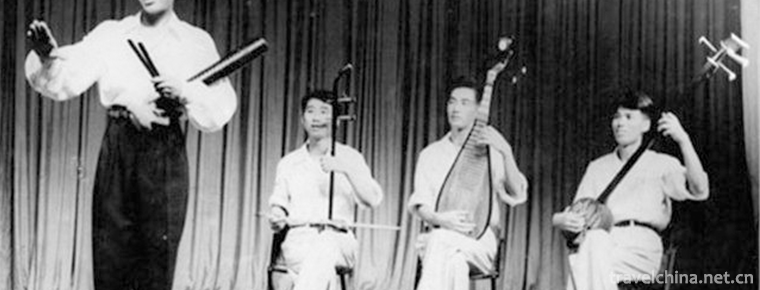
-
Crystal River Shrimps
Crystal river shrimp is a local famous dish, which belongs to Shanghai cuisine. The size is uniform, crystal clear, elastic and brittle..
Views: 245 Time 2018-11-14 -
Shenyuan Scenic Spot Lu Xuns Hometown
Shenyuan is a national 5A scenic spot, located in Chunbolang, Yuecheng District, Shaoxing City. It is a famous garden in Song Dynasty. Shenyuan has a history of more than 800 years..
Views: 120 Time 2018-12-07 -
Yashan Huahai Stone Forest
Yashan Huahai Stone Forest Tourist Area, located in Nanling County, Wuhu City, Anhui Province, is one of the important scenic spots in Anhui's "two mountains and one lake" tourism economic c.
Views: 160 Time 2018-12-20 -
Overhanging Great Wall
The hanging wall of the Great Wall is located on the northern slope of the Heishan Mountains on the north side of Shiguan Gorge, 8 kilometers north of Jiayuguan City.
Views: 151 Time 2019-02-26 -
Purple Peng mountain
Zipeng Mountain, also known as Liling Mountain and North Jiuhua Mountain, is located in the south of Zipeng Town, Hefei City, Anhui Province. It is about 18 kilometers away from Hefei City. Since the .
Views: 175 Time 2019-03-21 -
Gao Jia Opera
Gaojia Opera, a local traditional drama in Quanzhou City, Fujian Province, is one of the national intangible cultural heritage..
Views: 151 Time 2019-04-30 -
Ming style Furniture Making Skills
Ming-style furniture production techniques began in the Five Dynasties, after the Song Dynasty, including Liao and Jin Dynasties. In the Ming Dynasty, it reached a brilliant peak and developed into di.
Views: 115 Time 2019-06-05 -
Sigangli
Lincang City is located in the southwest of Yunnan Province, which is adjacent to the west, southwest of Yunnan and Myanmar. It has jurisdiction over one district, four counties and three autonomous c.
Views: 137 Time 2019-06-16 -
Linear cavity
Line-tune opera, also known as Line-score opera, is an ancient traditional opera in Shanxi Province. It first appeared in the Han and Tang Dynasties, and developed greatly. It flourished in the Song D.
Views: 153 Time 2019-07-03 -
Linking Luhe boxing
Xinyi Liuhe Quan, also known as Xinyi Quan and Liuhe Quan, is one of the most famous excellent types of boxing in China, which combines fighting, fitness, self-defense and health preservation. It is o.
Views: 144 Time 2019-07-06 -
Chaohu University
Chaohu College (Chaohu University), located in Chaohu, Hefei, Anhui, Chaohu half soup hot spring health resort, is a Anhui provincial full-time undergraduate institutions, local application oriented i.
Views: 178 Time 2019-11-08 -
China Agricultural University
China Agricultural University (China Agricultural University), referred to as "China Agricultural University", is located in Beijing City By Ministry of Education of the People's Republic of.
Views: 184 Time 2019-12-21
